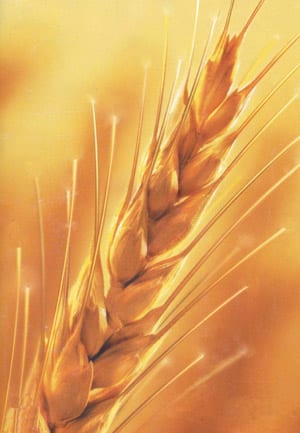Wheat is definitely a bad food for gout sufferers. According to cardiologist Dr. William Davis, author of the best-selling book “Wheat Belly,” the botanical variety of wheat that almost all farmers grow today:
- Is high in starchy carbohydrates that contribute to weight gain, especially in the belly region. Being overweight or obese is a strong risk factor for gout.
- Causes elevated blood sugar levels and insulin spikes that increase inflammation and raise uric acid levels.
- Contains an addictive substance called gliadin, which causes a craving for more and more wheat. This adds to weight gain and leads to a lower consumption of nutrient-dense foods needed to live free of gout.

Wheat Allergies and Gout
Allergies cause inflammation, and inflammation contributes to gout.
- Wheat is one of the top eight foods in the U.S. to which people have allergic reactions. Any one of 27 different proteins in wheat could trigger an allergic response including, but not limited to, gluten.
- Some people are allergic to wheat, but not other grains containing gluten, like barley and rye.
Wheat allergies produce a variety of symptoms like rashes, hives, itching, swelling, wheezing, and trouble breathing — all of which are related to the same inflammation that aggravates gout.
. . .
I didn’t wanna alarm ya Bert… But… Just beat one back…. No foolin, hurt like a muthaf%cka too… Turns out, me and absinthe don’t mix… But water water water, cherry juice and Advil will kick ass eventually…. I love your work big guy… One day I will be worthy!! ~ John
. . .
Celiac, Gluten-Sensitivity, and Gout
Roughly 1% of American adults have Celiac Disease, but many more have gluten sensitivity, which contributes to gout by disrupting the digestive process.
In fighting gout, it’s important to have a healthy digestive system so the nutrients in food can be effectively absorbed and used to create a strong, gout-proof body.
Gluten-sensitivity symptoms are most often displayed as digestive tract problems like abdominal pain, diarrhea, constipation, bloating, and gas — all of which limit the body’s ability to absorb dietary nutrients.
Wheat contains more gluten than any other food, so the best way to decrease gluten consumption is to avoid wheat.
Cutting Down on Wheat Consumption
Whether made from whole or refined grain, avoid the following foods to decrease your intake of wheat:
- bread
- pasta
- pizza
- breakfast cereals
- pretzels
- crackers
- cakes
- cookies
Whole grains are always better than refined grains, but wheat is wheat. Your best bet is to avoid all of it.
☆ Bottom Line: No one should eat today’s wheat, especially those with a gout problem. Drop wheat from your diet and you’ll drop the pounds, plus minimize the painful inflammation of gout!

